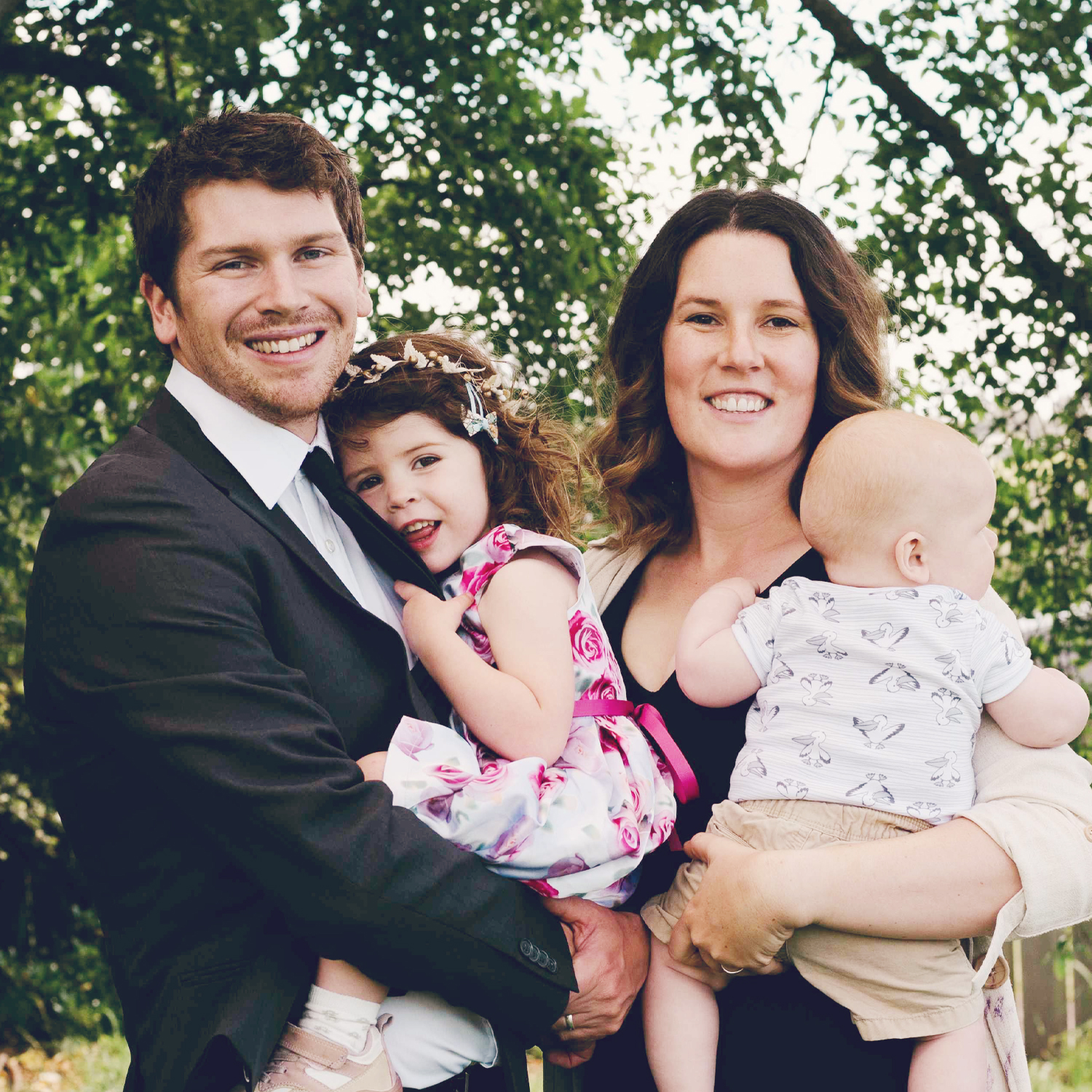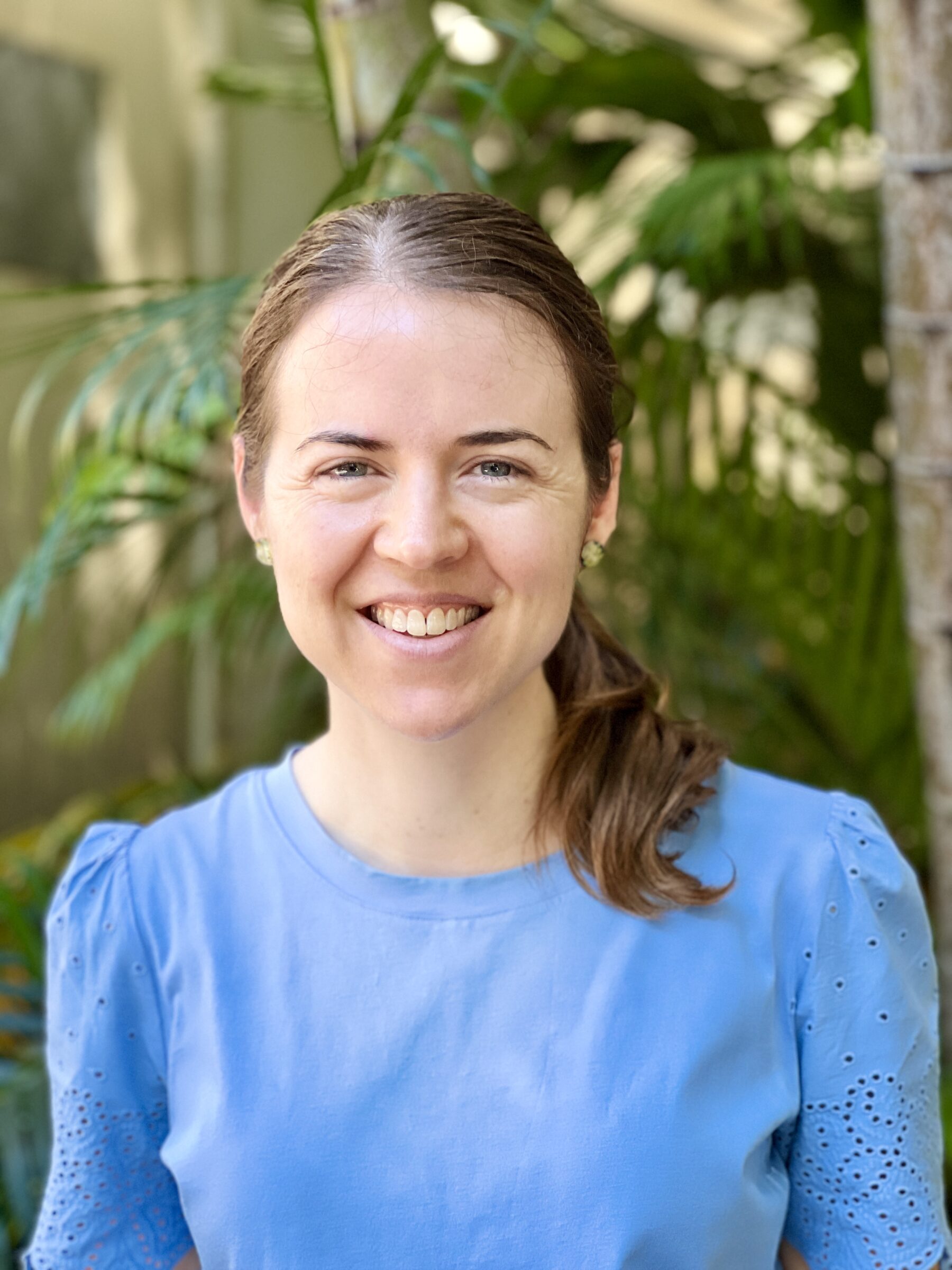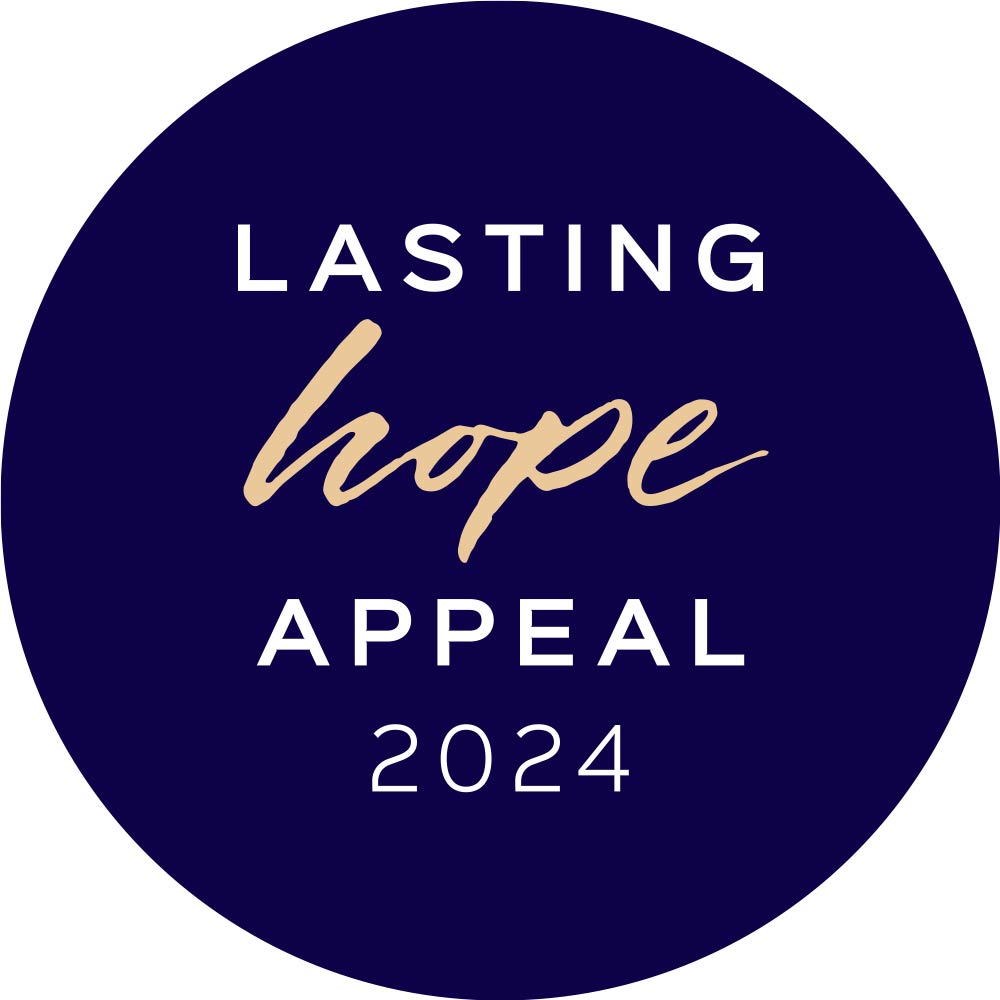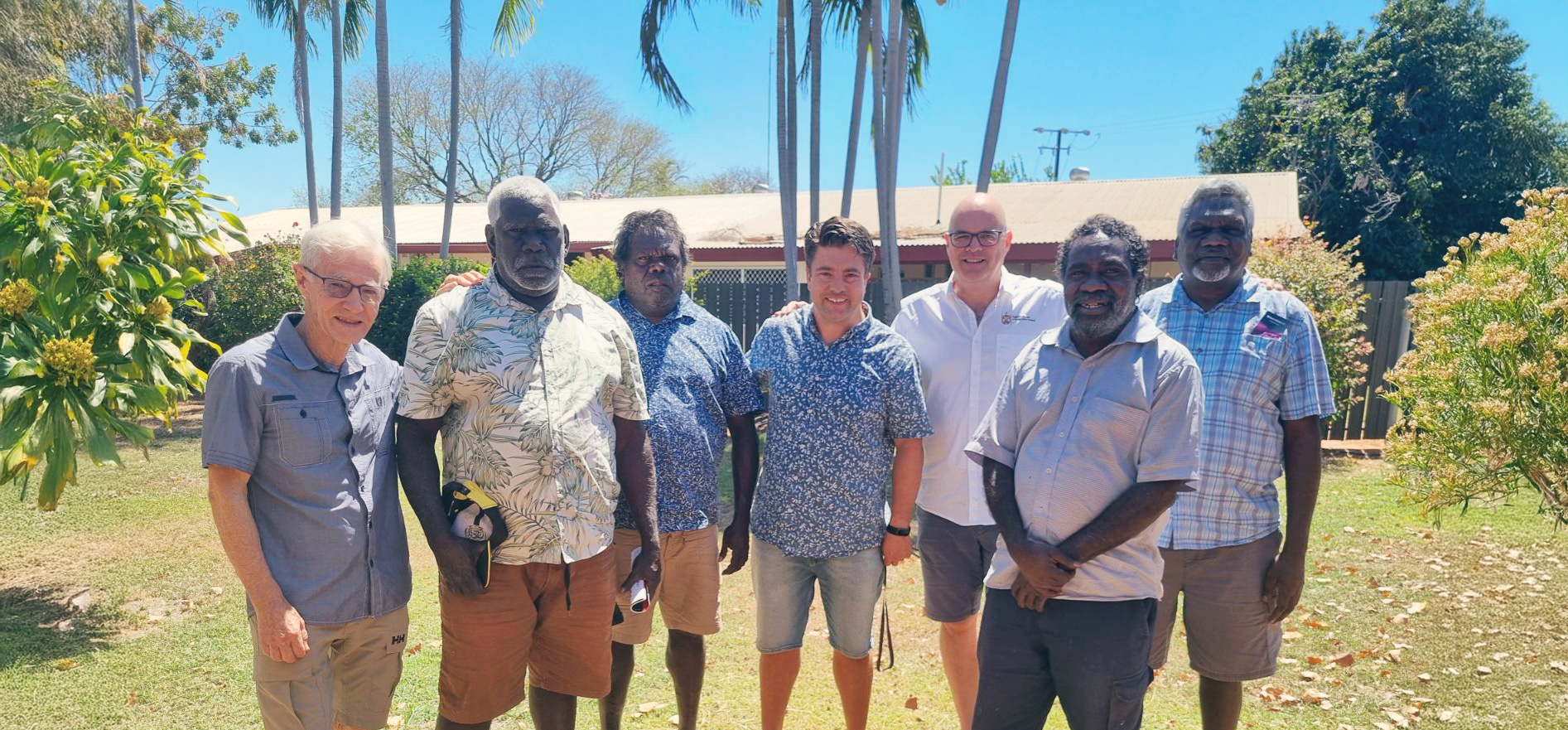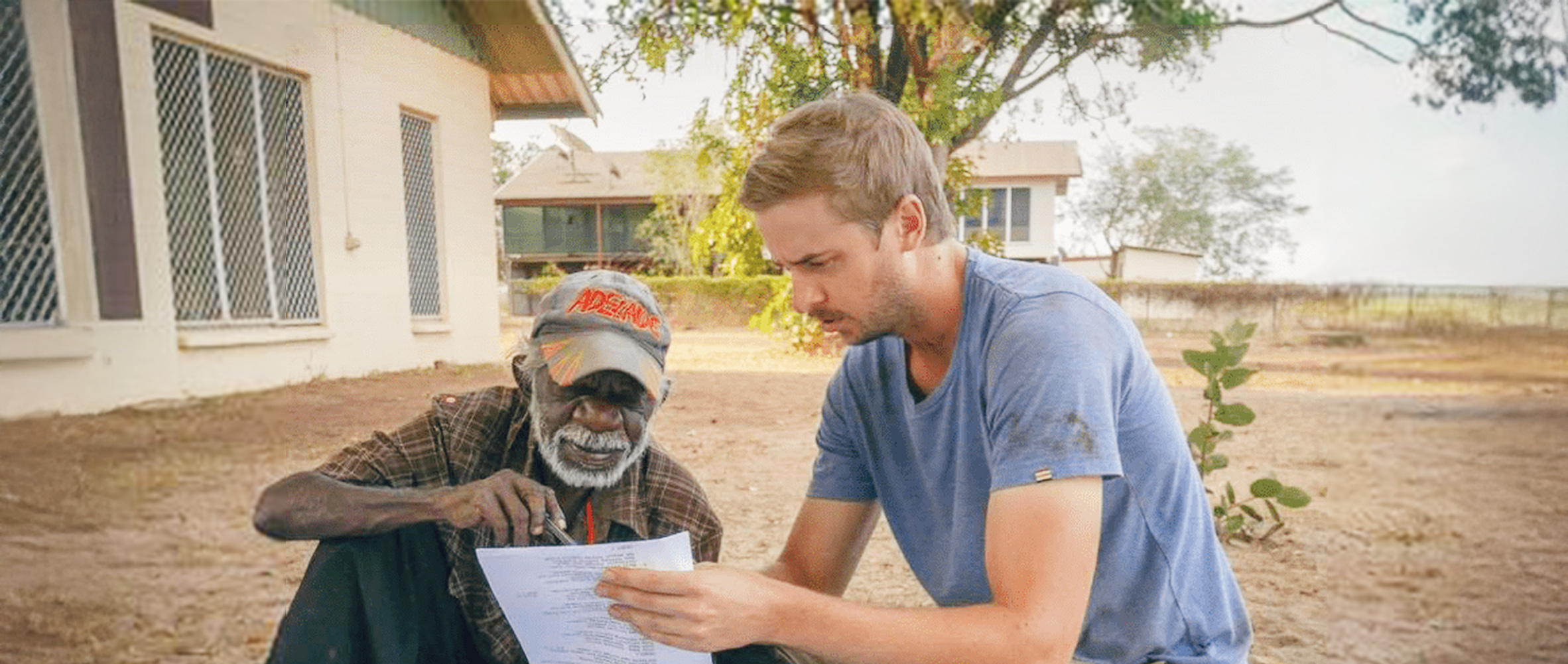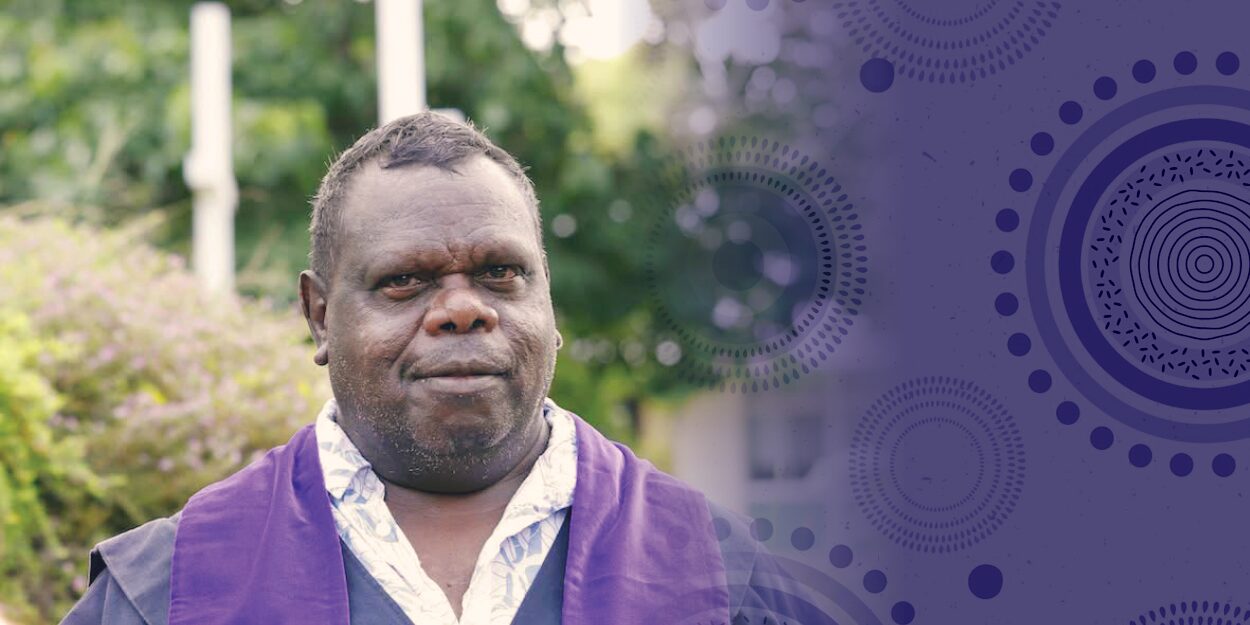John 3:16 – When good news sounds bad
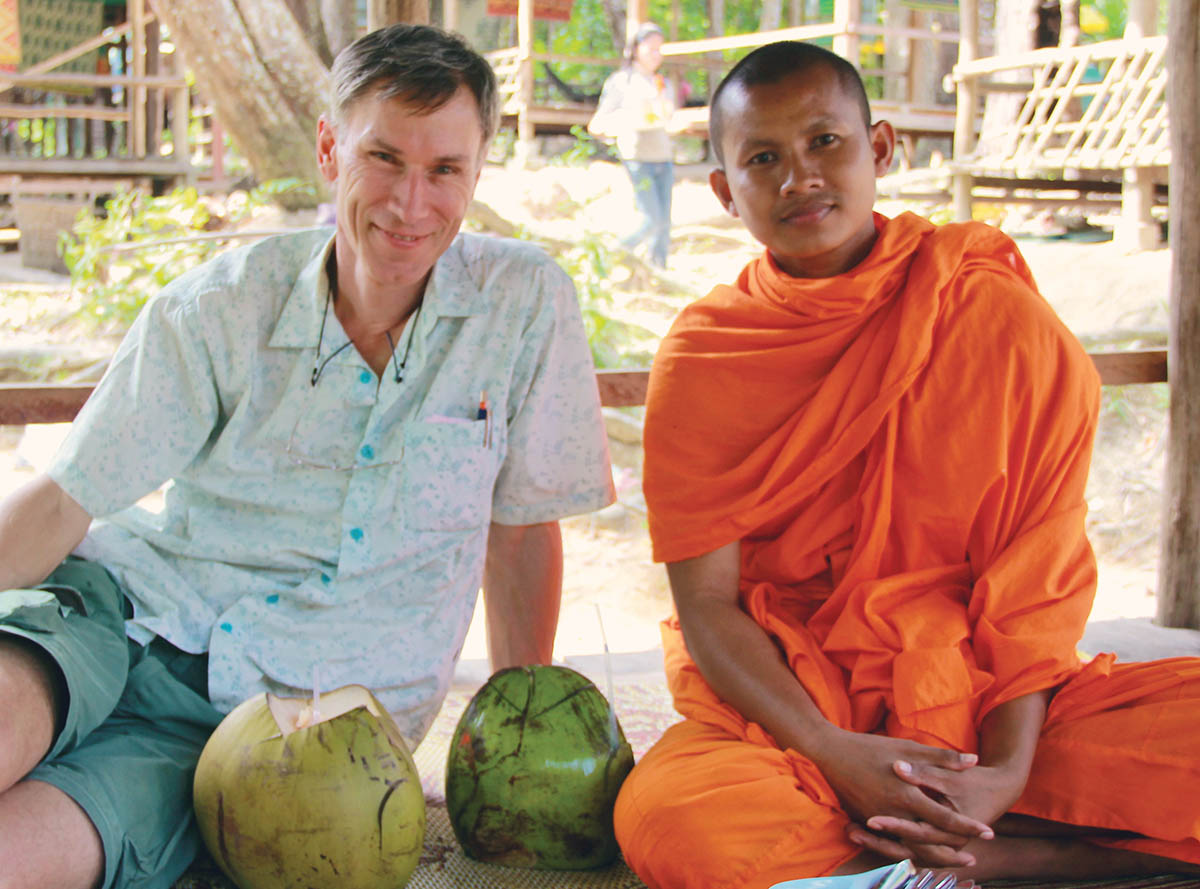
Wim Prins with a Buddhist monk friend in Cambodia.
CMS missionary Wim Prins (serving with Maaike in Cambodia) describes how he engages with Buddhists who view the good news of Christianity as not good at all. He also introduces us to the important and related Christian literature work of Fount of Wisdom.
John 3:16
John 3:16 declares the wonderful news that “God so loved the world that he gave his one and only Son, that whoever believes in him shall not perish but have eternal life.” But from a purely Buddhist point of view, this is bad news from beginning to end—clear proof that we adhere to an inferior religion. Here is how many Buddhists would understand John 3:16.
God—A personal God is deluded about self and is obviously not in nirvana. And if he is in heaven, then he has a long way to go: no one goes from heaven straight to nirvana.
so loved the world—Love is attachment. Attachment is the cause of all suffering, disease and dukkha (unsatisfactoriness).
that he gave—God can give us nothing. We have to do it ourselves.
his one and only Son—A personal God has a personal Son?! Let me teach you about anatta (non-self)!
that whoever believes in him—Do you mean trust in Christ? I have more faith in the Buddha, who has reached the goal (nirvana), though, of course, no one should depend on anyone.
shall not perish—Perishing is not a big deal—every day, people travel in both directions between earth and hell, and between the various levels in hell and those in heaven. It’s part of our journey.
but have eternal life—Who wants that? Life is suffering! We seek nirvana.
Sharing the good news
A major challenge of speaking the good news to Cambodian Buddhists is the impact of two of their most famous proverbs: ‘do good and good will happen to you’ and ‘depend on yourself’. A convert to Christianity is often regarded as a disrupter of the social fabric, no longer performing their duty towards other Buddhists. How then should we share the gospel with them?
When sharing the good news with Buddhist monks, my approach is more personal than it was when I first arrived 14 years ago. Monks are real people with all the needs, desires, delights and ambitions common to everyone. Pure Buddhism is ultimately unliveable, even for monks, and suppressing this truth (see Romans 1:18) requires enormous effort to sustain. So I talk about those truths of human reality (and God’s existence) that I see. I try to keep it casual. Sometimes we don’t talk religion at all. We might go on a picnic to an historic site, or I might invite them to my home for a drink or a meal. More recently, I’ve had opportunities to invite a monk for a meal at a restaurant and introduce him to a Khmer Christian, and to offer monks rides from their temple to Siem Reap. They even feel free to ask for a ride now.
Most of my ministry is not the sort of frontline work described above, though. I believe the Cambodian Church has reached a stage where there’s an urgent need for first, second and third-generation Christians to grow in maturity. For me, this means publishing Christian books. From my contacts with Cambodians, I’m learning what makes them tick. This has motivated me towards translating books tha fulfil a need for a Christian and non-Christians Cambodian readership alike. Currently, I’m working on a Khmer Bible dictionary that will be a fantastic resource for Christian leaders.
Cambodia is a gospel-poor, near-neighbour country. The ministries I’m involved in are just a few of many ways to help fulfil CMS’s vision for a Buddhist world that knows Jesus. How could you engage in evangelising people from Buddhist backgrounds?
Wim writes more about his work with the Cambodian-led and staffed Christian publishing house, Fount of Wisdom, here.
GIVE
The literature ministry that Wim Prins is involved in provides resources for leaders of this generation and the next. Give to support the Prinses as they assist this unique work.






